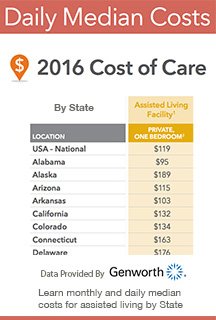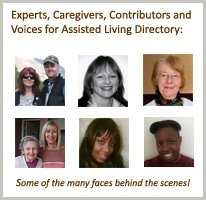An Overview of Maryland's Medicaid Waivers, Older Adults Waiver, and Long-Term Care Support

Summary: An overview of the handful of Medicaid Waivers, Home & Community Based Waivers, as well as other waivers and long-term care programs and supports available to seniors living in Maryland in a structured care environment such as assisted living, or still living independently at home.
Author: Regina Woodard exclusively for Assisted Living Directory
Regina is a regular contributor to Assisted Living Directory.
Ah, Maryland. The Chesapeake Bay state, contradiction by being one of the smaller states in the US, but also one of the most densely populated. There are nearly 5.7 million people in Maryland alone and of those, 18.6% of them were over the age of 60. That number is expected to continue rising, making it 25.8% by the end of 2030.
With that many seniors, being able to look for assistance with helping parents and grandparents either stay within their homes or by finding ways of paying for assisted living is paramount. There is such a wealth of information that one can find in regards to helping their loved one, whether it be going from their home to an assisted living facility or the transition from such care back to their own homes.
Return to, or visit our Maryland assisted living section for facilities, video tours & additiona state/local resources

Long Term Support
Maryland’s Department of Health and Mental Hygiene offers public meetings for several different programs, like the community options council, financial programs, a medical day care waiver, and the Maryland Medicaid Advisory Committee.
There’s also a gateway known as the Maryland Access Point, or MAP, for seniors and those with disabilities. Offered statewide, it’s a great resource for information and assistance for long term services, focusing on helping keeping individuals in their own homes and planning for their future needs.
Home and Community Based Options Waiver
The Home and Community Base Options waiver is a combination of the Living at Home Waiver Program and the Older Adults waiver, providing assistance to help people with physical disabilities to live in their own home. This is actually a very popular waiver, one that does have a waiting list for individuals who would like to utilize it; with that in mind, individuals and their families need to make sure that they meet all of the requirements for the waiver individuals must meet the nursing home level of care, a monthly income should not exceed 300% of SSI benefits, and individuals must be between the ages of 18 and 59.
Due to the inclusion of the Older Adults waiver, individuals may need to be at least 50 years of age, with different criteria for those who are either on or seeking Medicaid financially, the income base is still the same, but individuals and families have three options to qualify:
- If married and a spouse is not seeking Medicaid, a certain amount of income and resources can be used for the non-applicant as a living allowance. In 2014, countable assets are valued $117,240 and a monthly income of $2,931.
- Those with high medical costs can participate in a Medicaid spend down.
- Individuals can restructure finances in order to meet the limits, with excess income being allocated into a qualifying income trust.
If you or a loved one meet these criteria, you can call 1.866.417.3480 to inquire about and be put on the registry list.
A similar waiver to the Home and Community Based Options waiver is that of the New Directions Waiver. Individuals plan out their lives, but identifying the needed support and services for an individual plan; this includes planning a dollar amount for purchases of services and support in order to implement the plan and are encouraged to be creative in planning for their living situations.
In order to be eligible for the New Directions Waiver, one must be DD eligible (that’s determined by the Developmental Disabilities Administration), be of any age, meet the financial requirements, and live in their own home or a family home within the community. In return, the services that New Directions offer is that of support brokerage, personal support, community access transportation, respite care, fiscal management service, and assistive technologies, among others.
Hopkins Elder Plus (PACE)
The Program of All inclusive Care for the Elderly, or PACE, is a voluntary health program offered by the Johns Hopkins Bayview Medical Center to help provide and coordinate the needed preventive, primary, acute, and long term care services so that seniors are able to continue living in their homes and community. Services include day health care, physician care and supervision, medications, medical equipment, nursing care, transportation, meals, in home care, and others.
To be eligible for the PACE program, individuals need to be 55 years or older, living in one of the required zip codes, be certified for nursing home level care, and have the potential and ability to remain safely within their homes and community with the program’s assistance.
Community First Choice
The Community First Choice program is actually a combination of three different programs that work together to provide community services and support to help seniors and those with disabilities continue living in their homes and the community. Like the previous programs, the CFC provides assistance with daily living activities to those on Medicaid who have a chronic illness, medical condition, or disability. Each program has different services, but again they all act in conjunction to assure individuals are able to receive the care they need without needing to go into a nursing home.
Services provided include daily activities, such as bathing, mobility, eating, and dressing.
These are just some of the different programs that Maryland offers to individuals and their families, especially for those who still need care but would like to continue staying in their homes or the community.
Again, the state of Maryland offers plenty of resources for families to research and gather information in which to help their loved one with assistance in living in their own homes.
No Obligation
Assisted Living with An Overview of Maryland's Medicaid Waivers, Older Adults Waiver, and Long-Term Care Support





